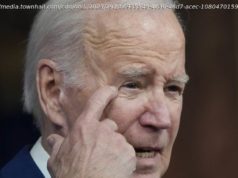The US and China are close to a deal that would give China’s ZTE Corp. a reprieve from crippling US sanctions in exchange for Beijing…
The US and China are close to a deal that would give China’s ZTE Corp. a reprieve from crippling US sanctions in exchange for Beijing removing tariffs on billions of dollars of American agricultural products, a new report said Monday.
The negotiations would also ease roadblocks in China faced by the US semiconductor company Qualcomm Inc., whose hoped-for acquisition of NXP Semiconductors NV of the Netherlands has been held up by the Chinese, The Wall Street Journal reported .
China’s Commerce Ministry pledged to immediately restart its review of the acquisition, a person close to the agency told the paper.
The ministry has held up a number of multibillion-dollar cross-border deals being pursued by US companies over the past few months because of Trump’s protectionist trade policies.
ZTE is a Shenzen-based telecommunication-equipment producer that has been hamstrung by a seven-year ban on component sales by the US to the firm.
But the deal could fall apart as discussions continued, particularly since the US is sharply divided over how to deal with China.
President Trump tweeted that he was working with Chinese President Xi Jinping to get ZTE “a way to get back into business, fast. Too many jobs in China lost.” He said the Commerce Department has been instructed to “get it done!”
Trump’s tweet stunned many in the West Wing, the paper reported, because there hadn’t been much internal discussions on the policy, The WSJ reported.
The US Commerce Department last month blocked ZTE from importing American components for seven years.
The US accused ZTE of misleading American regulators after it settled charges of violating sanctions against North Korea and Iran — and top intelligence community staffers have said the company poses a cyber threat to the US.
And experts said Trump’s seeming concern about Chinese jobs was something of a backflip.
“A reversal of the ZTE decision could temporarily tamp down trade tensions by allowing the Chinese to make concessions to the US without losing face,” said Eswar Prasad, a professor of trade policy at Cornell University.
“Trump may have recognized that backing off on ZTE clears the path for him to claim at least a partial victory in the US-China trade dispute based on the concessions the Chinese seem prepared to offer.”
Others called the move unprecedented.
“I’ve never seen a president step in and reverse an agency decision like this. It’s not clear, of course, if he’s planning to really reverse it or think of a solution in a larger context, but it is something that is just out of the norm,” said Amanda DeBusk, the chair of the international trade and government regulations practice at the firm Dechert LLP.
DeBusk, a former Commerce Department assistant secretary for export enforcement, said Trump’s announcement indicates “he is looking to accomplish his objectives on trade with China on a much larger level.”
The tactic caught experts on international relations off guard.
“At a minimum, the optics of the decision are terrible. Although the recent step to ban sales of American components to ZTE for seven years may have been going overboard, the manner in which this reversal is being made cheapens the value of the national security and legal foundations of executive branch actions,” said Scott Kennedy, of the Center for Strategic & International Studies.
“It makes it appear as if the Trump administration is willing to trade protecting American national security for promoting some US agricultural exports and Chinese jobs.”
California Rep. Adam Schiff, the top Democrat on the intelligence committee, criticized Trump for softening his stance on ZTE.
“Our intelligence agencies have warned that ZTE technology and phones pose a major cybersecurity threat. You should care more about our national security than Chinese jobs,” Schiff said in a tweet directed at Trump.
China had recently stopped importing US soybeans, dealing a major blow to American agricultural interests, after threatening to slap the US with a 25 percent tariff.






